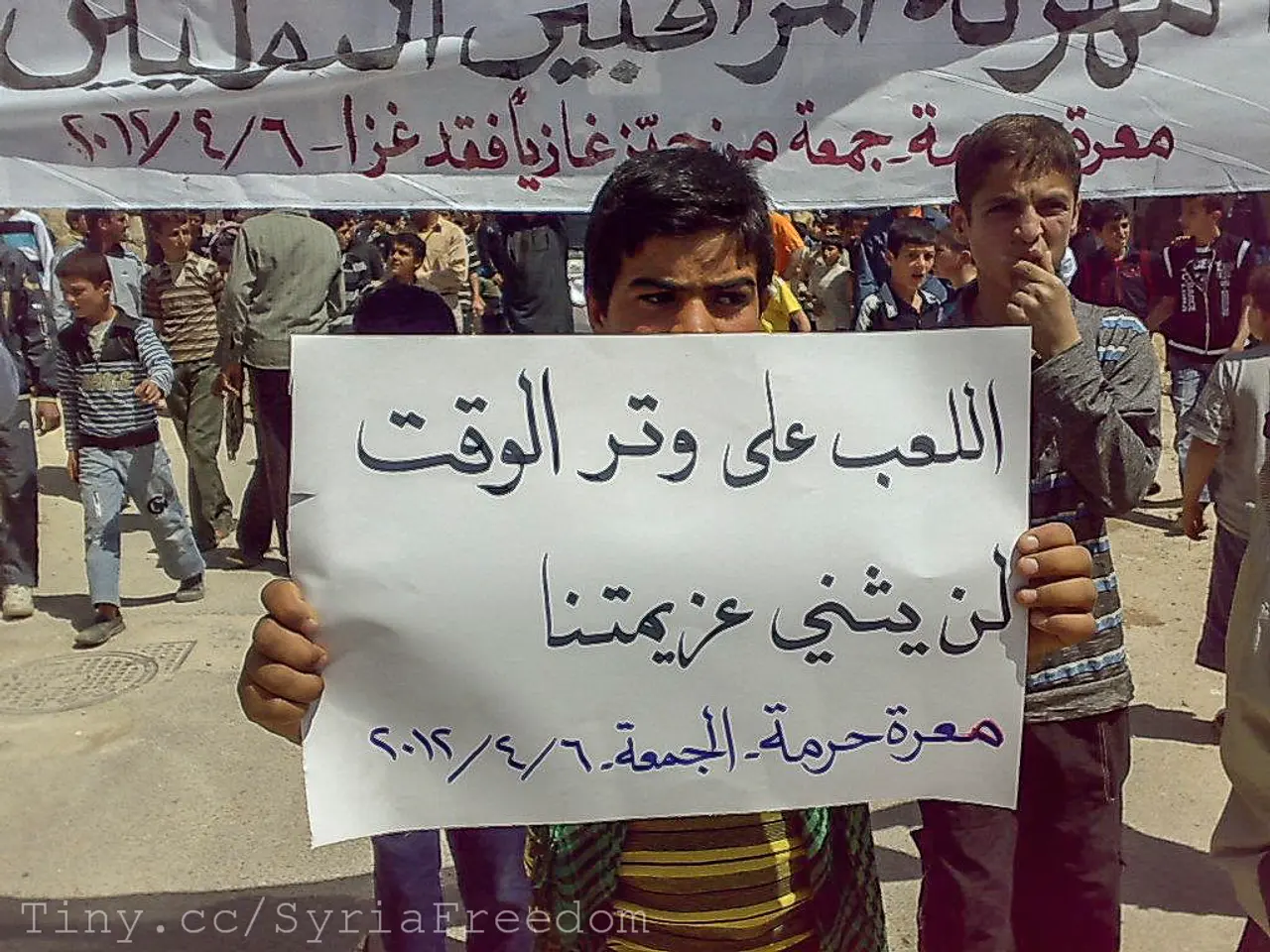TikTok employees rally against layoffs
In the heart of Berlin, a significant standoff is unfolding between TikTok and the trade union Verdi. The union is staging a strike against the popular video platform, owned by the Chinese company Bytedance, in response to planned changes in content moderation[1][2].
The crux of the issue lies in TikTok's decision to dissolve its Trust and Safety department, a move that has left about 150 content moderators in the German-speaking region at risk of being laid off[2][3]. To mitigate this, the company is planning to replace human moderators with AI systems and external providers. However, the striking workers and Verdi are demanding severance payments equivalent to three years' salary, an extension of the notice period by 12 months, and transitional support for retraining and career changes[1][2].
These demands are grounded in TikTok's high profits—over $23 billion annually—and the specialized expertise of the moderators, whose work also involves managing traumatic content that can impact their health[1][2][3]. The union emphasizes that this strike marks a pioneering moment for union organizing in the platform economy in Germany[1][2].
The AI implementation is part of the planned changes in content moderation that the union is striking against. Interestingly, the employees who are currently part of the Trust and Safety department are training the AI that will take over their tasks[4].
Verdi's concerns extend beyond potential job losses. They fear that outsourcing content moderation could worsen working conditions, lower wages, and reduce investment in health and safety measures for moderators[3]. There is also apprehension about the risks of relying heavily on AI for content moderation without adequate human oversight, especially regarding politically and socially sensitive content[3].
The union's protests have been visible, with a boat tour on the Spree River and a rally at Mühlenstraße 70-71 in Berlin[1][2]. TikTok management has so far refused to enter negotiations with Verdi, prompting the strike and associated protests.
As of late July 2025, the TikTok strike in Berlin remains active, with the union continuing to advocate for fair severance, longer notice periods, and recognition of the moderators' skilled labor and occupational hazards[1][2][4]. The standoff between TikTok and Verdi underscores the growing importance of union representation in the digital economy and the need for companies to consider the human impact of technological changes.
[1] Berndt, J. (2025). TikTok Strike: Verdi Union Protests Planned Changes in Content Moderation. TechCrunch. Retrieved from https://techcrunch.com/2025/07/23/tiktok-strike-verdi-union-protests-planned-changes-in-content-moderation/
[2] Schäfer, M. (2025). TikTok Strike: Verdi Union Protests Planned Outsourcing and AI Takeover. The Verge. Retrieved from https://www.theverge.com/2025/07/23/23067165/tiktok-strike-verdi-union-outsourcing-ai-takeover
[3] Römer, K. (2025). TikTok Strike: Verdi Union Fears Worsening Working Conditions and Lack of Human Oversight. Wired. Retrieved from https://www.wired.co.uk/article/tiktok-strike-verdi-union-working-conditions-ai
[4] Göbel, T. (2025). TikTok Strike: Verdi Union Reports AI Training by Trust and Safety Department Employees. TechRadar. Retrieved from https://www.techradar.com/news/tiktok-strike-verdi-union-reports-ai-training-by-trust-and-safety-department-employees
- The union, Verdi, is of the opinion that the financial success of TikTok, generating over $23 billion annually, warrants fair severance packages for the affected content moderators, as their roles also involve managing traumatic content that can impact their health.
- In the ongoing standoff between TikTok and Verdi, the union is concerned about the potential consequences of relying heavily on artificial-intelligence for content moderation without adequate human oversight, particularly when dealing with politically and socially sensitive content.
- As the crux of the issue involves TikTok's plans to replace human moderators with AI systems and external providers in the business and technology sector, Verdi is advocating for an extension of the notice period, transitional support for retraining, and recognition of the moderators' specialized expertise within the industry.




